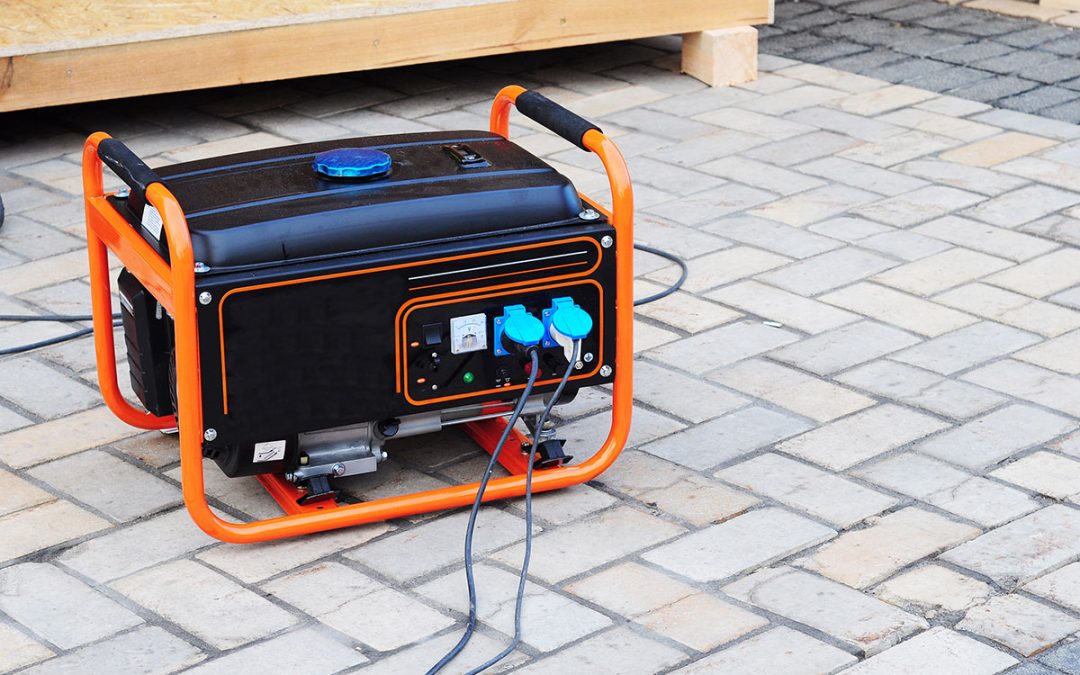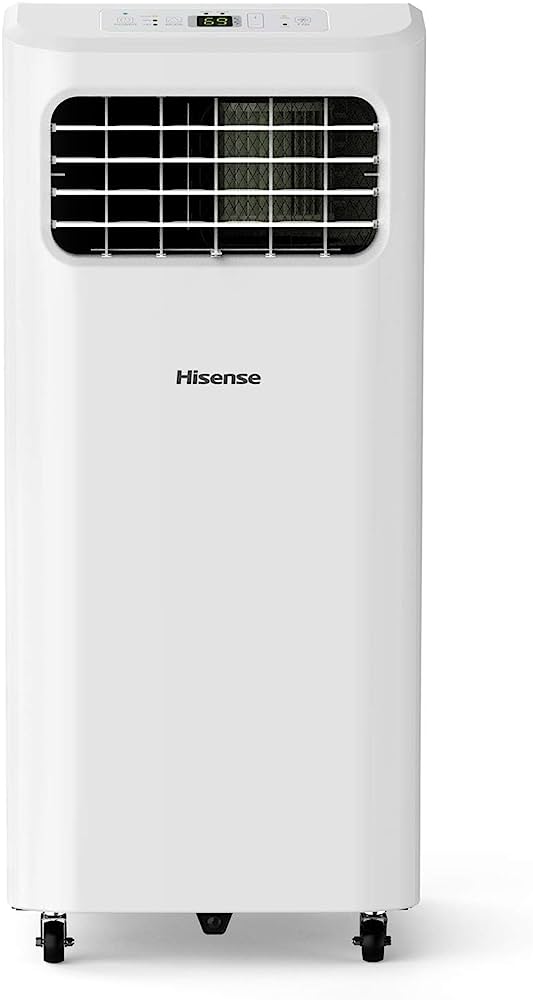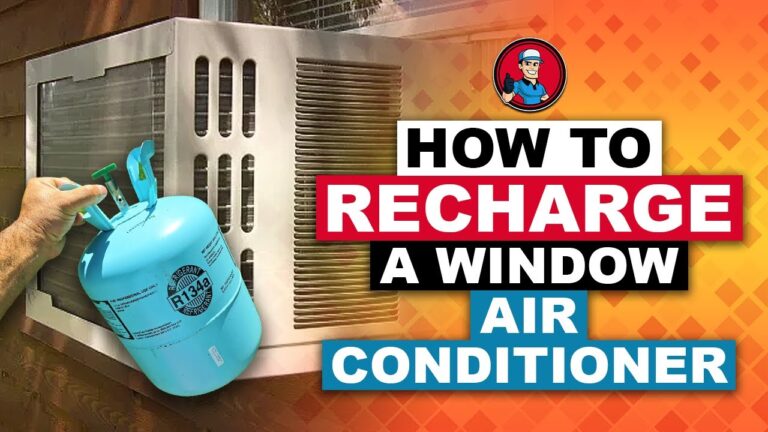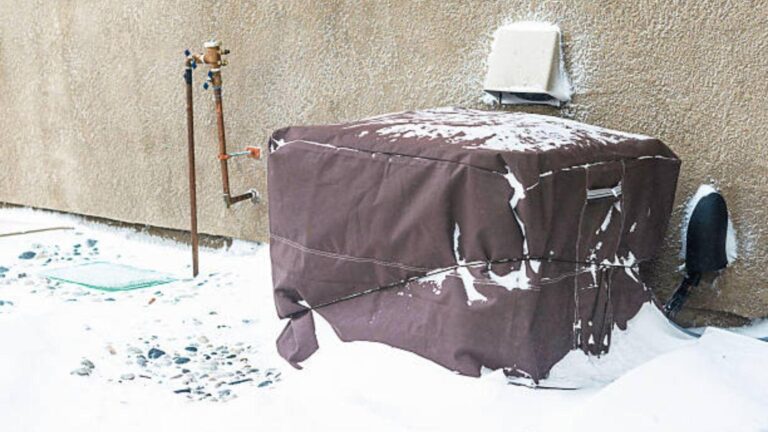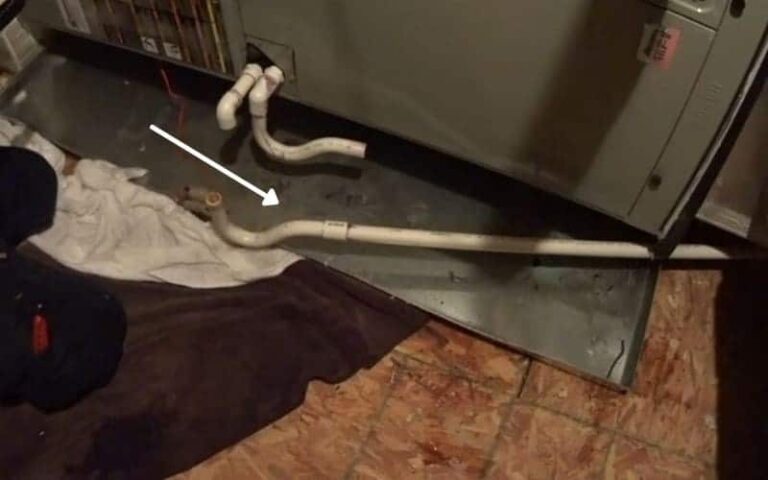Can I Run My Air Conditioner With A Generator?: Essential Guide
Yes, you can run your air conditioner with a generator. Ensure the generator’s wattage matches the air conditioner’s requirements.
Running an air conditioner with a generator is feasible, but you need to consider several factors. First, check the generator’s wattage to ensure it can handle the air conditioner’s power needs. Air conditioners typically require a significant amount of electricity, particularly during startup.
Using a generator with insufficient wattage can damage both the generator and the air conditioner. It’s crucial to calculate the startup and running watts of your air conditioner and compare them with the generator’s capacity. Always use a generator that meets or exceeds these requirements to ensure safe and efficient operation. Proper maintenance of both devices is essential for optimal performance.
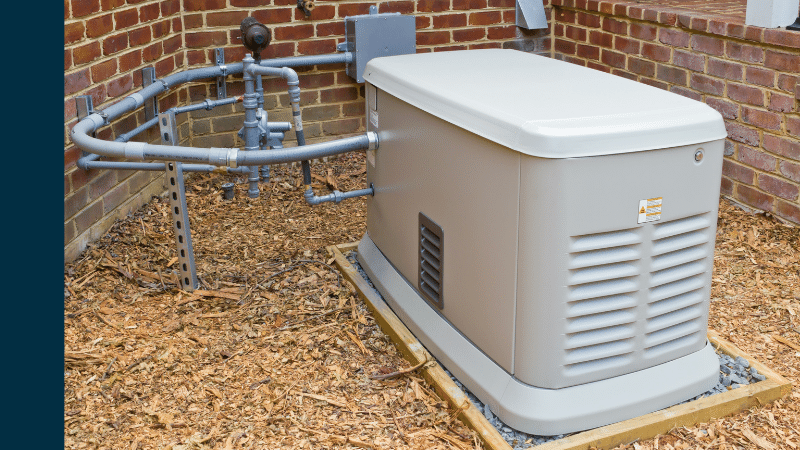
Credit: www.hvac.com
Benefits Of Using A Generator
Running an air conditioner with a generator can be a lifesaver. It ensures comfort during power outages or in remote locations. Using a generator offers multiple benefits that can enhance your daily life and provide peace of mind.
Power Outage Solutions
Power outages can disrupt your daily routine. A generator can keep your air conditioner running. This ensures a cool and comfortable environment even during blackouts. Generators provide a reliable backup power source. They can maintain essential home appliances and systems. This includes not only air conditioners but also refrigerators and lighting.
Energy Independence
Using a generator provides energy independence. You are not solely dependent on the main power grid. This can be crucial in areas with frequent power outages. Generators allow you to manage your power needs effectively. You can run your air conditioner without worrying about external power issues.
Generators also offer flexibility. They can be used in remote locations where power is unavailable. This is perfect for outdoor activities like camping or in off-grid homes. You can enjoy the comforts of home, including a cool environment, wherever you are.
| Benefit | Description |
|---|---|
| Power Outage Solutions | Keeps essential systems running during blackouts. |
| Energy Independence | Reduces reliance on the main power grid. |
- Reliable backup power
- Flexibility for remote locations
- Maintains comfort and safety
- Choose a suitable generator
- Ensure proper installation
- Regular maintenance is essential
Types Of Generators
Understanding the types of generators helps you choose the right one. Different generators offer unique benefits and power capacities.
Portable Generators
Portable generators are small and easy to move. They are great for emergencies and outdoor activities.
These generators usually run on gasoline. They can power small appliances, including a portable AC unit.
Here are some key features of portable generators:
- Compact size – Easy to store and transport.
- Versatile use – Suitable for home and outdoor events.
- Fuel-efficient – Uses gasoline, which is readily available.
| Feature | Details |
|---|---|
| Power Output | 1,000 to 10,000 watts |
| Fuel Type | Gasoline |
| Run Time | 5 to 12 hours |
Standby Generators
Standby generators are permanent fixtures installed outside your home. They automatically start during a power outage.
These generators can power your entire house, including central air conditioning. They run on natural gas or propane.
Key features of standby generators include:
- Automatic operation – Turns on when the power goes out.
- High power output – Can support large appliances and systems.
- Continuous fuel supply – Connected to your home’s gas lines.
| Feature | Details |
|---|---|
| Power Output | 7,000 to 20,000 watts |
| Fuel Type | Natural Gas or Propane |
| Run Time | Unlimited (with continuous fuel supply) |
Choosing The Right Generator
Running an air conditioner with a generator is possible. But, you must choose the right generator. This ensures your air conditioner runs smoothly. Selecting the right generator involves several factors. Let’s dive into them.
Power Requirements
First, determine the power requirements of your air conditioner. This is crucial. Check the air conditioner’s wattage. You can find this in the user manual or on the unit itself.
Next, match the generator’s power output to the air conditioner’s needs. Generators come in various sizes. Some are small, and others are large. Choose one that provides enough power. Here’s a simple table for guidance:
| Air Conditioner Size | Required Generator Power |
|---|---|
| 5000 BTU | 500 – 700 watts |
| 10000 BTU | 1000 – 1500 watts |
| 15000 BTU | 1500 – 2000 watts |
Ensure the generator can handle the starting wattage. This is usually higher than the running wattage. Overloading the generator can damage it and your air conditioner.
Fuel Type Considerations
Generators use different types of fuel. Common options include gasoline, diesel, and propane. Each has its pros and cons. Consider these when choosing a generator.
- Gasoline: Widely available, but has a shorter shelf life.
- Diesel: More efficient and has a longer shelf life.
- Propane: Cleaner burning, but requires a storage tank.
Think about fuel availability in your area. Also, consider how long you need the generator to run. Some fuels last longer than others.
Selecting the right generator involves understanding your air conditioner’s power needs and fuel options. This ensures you have a reliable power source.
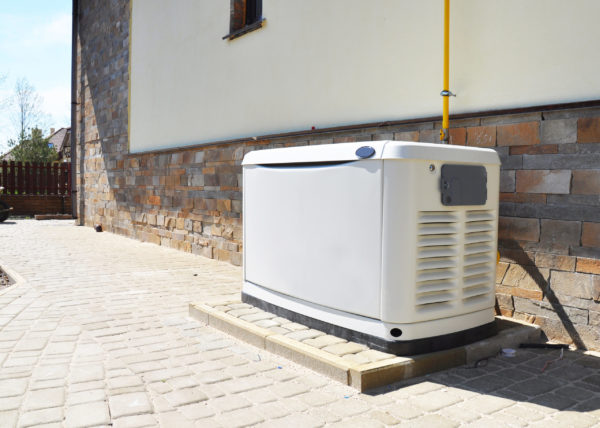
Credit: heatwaveheatingandcooling.com
Installation Process
Installing a generator to run your air conditioner can seem complex. But with the right guidance, it can be straightforward. This section will cover professional and DIY installation options.
Professional Installation
Hiring a professional ensures a safe and efficient installation. They have the expertise to handle electrical connections and safety protocols.
- Safety: Professionals follow strict safety guidelines.
- Efficiency: They complete the job quickly and correctly.
- Warranty: Professional work often comes with a warranty.
Professionals will assess your generator and air conditioner compatibility. They will install the necessary components and ensure everything works smoothly. This option saves time and reduces risks.
Diy Installation
For those who love to take on projects, DIY installation is an option. It requires careful planning and some technical know-how.
- Preparation: Gather all tools and materials needed.
- Safety First: Always turn off the main power supply.
- Connection: Connect the generator to your air conditioner following the manual.
- Testing: After installation, test the system to ensure it works.
DIY installation can be rewarding but comes with risks. Ensure you understand the process fully before starting. If unsure, consult a professional.
Safety Precautions
Running your air conditioner with a generator can be handy during power outages. But it is important to follow safety precautions. This will help you avoid accidents and keep your family safe.
Electrical Safety
Generators produce high voltage electricity. Always handle them with care. Follow these tips for electrical safety:
- Use a generator with enough power for your air conditioner.
- Check all cords for damage before use.
- Keep the generator dry to avoid shocks.
- Never touch the generator with wet hands.
- Plug appliances directly into the generator. Avoid using extension cords.
Follow these steps to prevent electrical fires and shocks. Keeping your family safe is the priority.
Carbon Monoxide Risks
Generators produce carbon monoxide (CO). CO is a deadly gas you cannot see or smell. To avoid CO poisoning, follow these tips:
- Never run a generator inside your home.
- Keep the generator outside, far from windows and doors.
- Install CO detectors in your home.
- Do not use the generator in a garage, even with the door open.
- Ensure proper ventilation around the generator.
Taking these steps helps avoid the dangers of carbon monoxide poisoning. Always prioritize fresh air and ventilation.

Credit: dolphincooling.com
Maintenance Tips
Maintaining your generator is crucial for its optimal performance. Here are some essential maintenance tips to keep your generator running smoothly. Follow these guidelines to ensure your air conditioner operates efficiently with a generator.
Regular Inspections
Regular inspections help identify potential issues early. Check the oil level and quality frequently. Inspect the air filter to ensure it’s clean. A dirty air filter can reduce performance. Examine the spark plug for wear and tear. Replace it if necessary. Ensure all wires are connected securely. Loose wires can cause malfunctions.
Fuel Storage
Proper fuel storage is essential for generator longevity. Use fresh fuel to avoid engine problems. Store fuel in a cool, dry place. Ensure the storage area is well-ventilated. Label containers with the date of storage.
Consider using a fuel stabilizer. This helps keep the fuel fresh for longer. Rotate your fuel supply every six months.
| Maintenance Task | Frequency |
|---|---|
| Check Oil Level | Every 50 hours |
| Inspect Air Filter | Every 100 hours |
| Replace Spark Plug | Annually |
| Rotate Fuel Supply | Every 6 months |
Maintaining your generator ensures your air conditioner runs efficiently. Follow these tips for a seamless experience.
Cost Considerations
Running an air conditioner with a generator involves various costs. Understanding these costs can help you make an informed decision. Let’s dive into the key cost considerations.
Initial Investment
The initial investment includes the cost of purchasing a generator. Generators come in various sizes and capacities. A small generator might not power a large air conditioner.
Consider the generator’s wattage before buying. A typical air conditioner needs around 2000-3000 watts. Larger units may require more power.
Here is a table to illustrate the cost range:
| Generator Type | Cost Range |
|---|---|
| Portable Generators | $300 – $1,000 |
| Standby Generators | $2,000 – $5,000 |
| Inverter Generators | $500 – $3,000 |
Operating Costs
Operating costs include fuel, maintenance, and potential repairs. Fuel types vary, from gasoline to propane.
Here’s a breakdown of common operating costs:
- Fuel Consumption: Generators consume fuel to run. A typical generator might use 1-2 gallons per hour.
- Maintenance: Regular maintenance is crucial. This includes oil changes and filter replacements.
- Repairs: Over time, parts may need repairs or replacements.
To keep costs low, maintain your generator properly. This ensures it runs efficiently and lasts longer.
Environmental Impact
Running an air conditioner with a generator can have an environmental impact. This impact can be broken down into two main areas: fuel emissions and noise pollution. Understanding these effects can help you make informed decisions.
Fuel Emissions
Generators often use gasoline or diesel fuel. Burning these fuels releases carbon dioxide (CO2) and other harmful gases. These emissions contribute to air pollution and global warming. Reducing these emissions is crucial for protecting our planet.
To minimize emissions, consider using a generator with lower fuel consumption. Some generators are designed to be more fuel-efficient. This means they produce fewer emissions. Another option is using a generator that runs on cleaner fuels like natural gas or propane.
Noise Pollution
Generators can be very noisy. This noise can disturb your neighbors and wildlife. Noise pollution can cause stress and disrupt sleep. It is important to choose a generator with low noise levels. Some generators are designed to be quieter.
Consider placing the generator in a soundproof enclosure. This can help reduce the noise. Also, placing the generator far from living areas can minimize the impact of the noise.
Frequently Asked Questions
What Size Generator Do I Need To Run An Air Conditioner?
A 5,000 to 7,000-watt generator is typically needed to run a central air conditioner. Always check your unit’s specifications.
Is It Safe To Run AC on A Generator?
Yes, it’s safe to run an AC on a generator if the generator matches the AC’s power requirements. Ensure proper ventilation.
How To Power An Air Conditioner With A Generator?
To power an air conditioner with a generator, ensure the generator’s wattage meets the AC unit’s requirements. Connect the air conditioner to the generator using a heavy-duty extension cord. Start the generator first, then turn on the air conditioner. Always follow safety guidelines and manufacturer’s instructions.
Conclusion
Running an air conditioner with a generator is possible. Ensure your generator meets the AC’s power requirements. Regular maintenance is crucial for optimal performance. Use energy-efficient practices to reduce strain on both appliances. This will keep your home cool and comfortable even during power outages.

